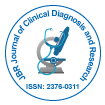Review Article
Pharmacovigilance Observed: Why Watchful Waiting will Work
Kowalski CJ and Mrdjenovich AJ*
Institutional Review Board for Health and Behavioral Sciences, Office of Research, University of Michigan, USA
- Corresponding Author:
- Mrdjenovich AJ
540 East Liberty St.
Suite #202 Ann Arbor
Michigan 48105, USA
E-mail: chuckk@umich.edu
Received Date: July 22, 2014; Accepted Date: October 30, 2014; Published Date: November 10, 2014
Citation: Kowalski CJ, Mrdjenovich AJ (2015) Pharmacovigilance Observed: Why Watchful Waiting will Work. J Clin Diagn Res 3:114. doi:10.4172/2376-0311.1000114
Copyright: ©2014 Kowalski CJ, et al. This is an open-access article distributed under the terms of the Creative Commons Attribution License, which permits unrestricted use, distribution, and reproduction in any medium, provided the original author and source are credited
Abstract
This paper reviews issues of pharmacovigilance, defined as “all scientific and data gathering activities relating to the detection, assessment, and understanding of adverse events”, including pharmacoepidemiologic studies, which are “undertaken with the goal of “identifying adverse events and understanding, to the extent possible, their nature, frequency, and potential risk factors”. Some of these activities could be carried out more effectively. Particular attention is paid to the use of prospective observational studies and registries as important tools in this regard. Indeed, in studying drug safety, there are many situations in which the use of observational research has definite advantages over the randomized controlled clinical trial. While some controversy persists about the usefulness of observational research in the study of beneficial, intended effects, fewer objections have been raised about the usefulness of observational research in the study of drug safety, i.e., in assessing harmful, unintended, usually unanticipated outcomes.

 Spanish
Spanish  Chinese
Chinese  Russian
Russian  German
German  French
French  Japanese
Japanese  Portuguese
Portuguese  Hindi
Hindi